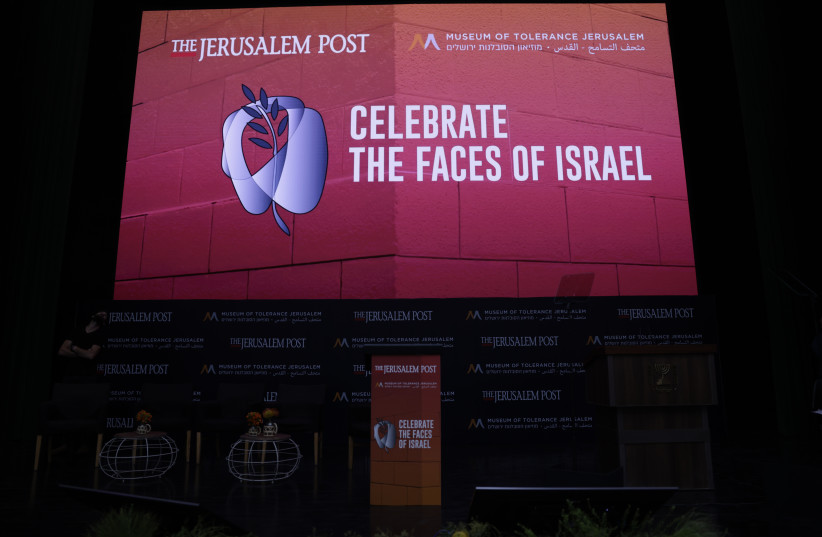Tolerance for others is dropping like a rock in the United States, according to a new Wall Street Journal-NORC poll. To quote the WSJ (March 28), “Tolerance for others, deemed very important by 80% of Americans as recently as four years ago, has fallen to 58% since then.” As I sit here in Jerusalem, having been invited to the 75th-anniversary celebrations of Israel and the soft opening of Jerusalem’s new Museum of Tolerance, tolerance is on my mind. What do we mean by tolerance?
Tolerance can mean all kinds of things these days. It appears that we are afflicted with what I call “tolerance confusion.” When I was growing up in the Midwestern US it meant, “I may not agree with what you are saying, but I will respect you and your right to say it.”
I call this “convictional tolerance.” I have my convictions; you have yours. We will talk about them, debate them and even try to persuade each other, but we will treat each other respectfully and stand for each other’s freedom of speech and religion.
As I grew older, I encountered another kind of tolerance at work in some ecumenical dialogues in the US, particularly as practiced by the National Council of Churches (NCC). I refer to this as the lowest common denominator (LCD) tolerance. It basically said, “Let’s see how little we can believe so we can all get along.”
So we minimize our convictions and in some cases, essentially jettison them until we all can agree. This seems to have morphed into the view that we tolerate everyone and everything except those who say that there is such a thing as truth and moral absolutes.

In recent years, an even newer view of tolerance has emerged in our culture, often practiced by progressives and sometimes referred to as “repressive tolerance.” Its origins go back to Herbert Marcuse and the neo-Marxist Frankfurt school.
It essentially says: “I will only tolerate you if I agree with you. But because your view is so reprehensible to me, I will not tolerate you if you hold views opposed to mine. I will not respect you as a person or interact with you or even debate with you or allow you the right of free speech; nevertheless, I consider myself a very tolerant person.” This is the tolerance of the so-called resistance movement that refuses to cooperate even in the interest of the common good.
And, of course, there are plenty of people who are just wholly intolerant and want to eliminate their opposition altogether. This has been present everywhere throughout history. This is the intolerance of terrorists.
Four different types of tolerance
THESE ARE four different views of tolerance: convictional tolerance, LCD tolerance, repressive tolerance and zero tolerance.
What is needed today? Well, the last view, I think and hope most Western readers would say, is not on the table. As for LCD tolerance, it did not fare well for the NCC as evidenced by the decline of Protestant mainline churches. And repressive tolerance has resulted in a cancel culture. It seems to me that the view that has borne the best fruit is what I have simply called “convictional tolerance.”
Convictional tolerance is rooted in a belief in truth and the dignity of others. It believes in tolerance but values truth first, seeing tolerance not as an absolute, but as a secondary virtue. This kind of tolerance is worth preserving and promoting. It is the view we try to promote at Colorado Christian University.
This brings me to my trip to Israel this past week and the opening of the new Museum of Tolerance here in Jerusalem.
Tolerance is really important in Jerusalem. It is essential to peace in the Middle East, for the protection of religious freedom, the thriving of Israel, the success of the Abraham Accords and the survival of Christians and other minorities throughout the region. And it seems as if a spirit of tolerance is blowing through the Middle East, one that does not seek to erase all differences or convictions, but protects them and calls us to affirm the dignity of those we are talking to and working with.
The new museum, one of the largest in Jerusalem, says it will celebrate the vibrancy of Israel’s democracy by promoting universal respect and advancing tolerance and human dignity for all, becoming “a lighthouse for human dignity dedicated to promoting understanding, respect and dialogue among people of different cultures and backgrounds.”
This is a noble aim. Let’s hope that aim is achieved, promoting a convictional tolerance that does not succumb to some of these more anemic and pseudo visions of tolerance.
The writer serves as the chancellor of Colorado Christian University.
